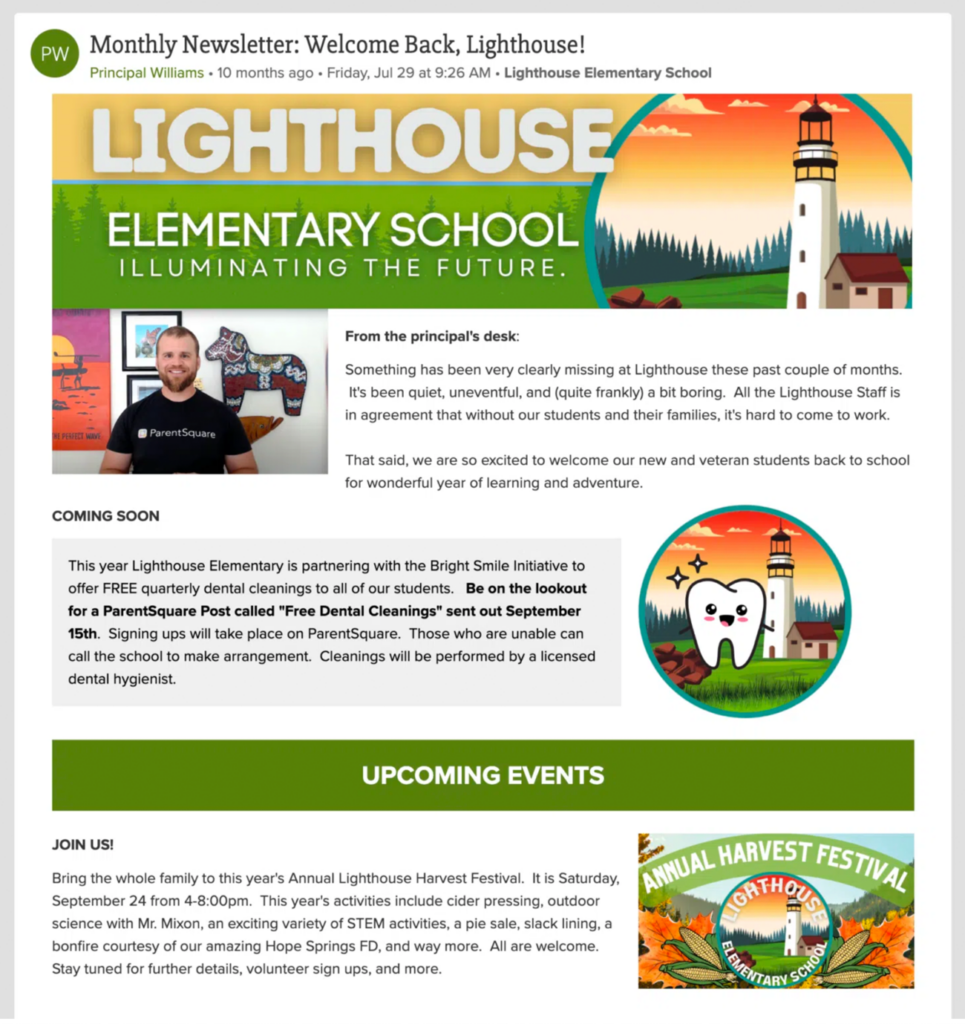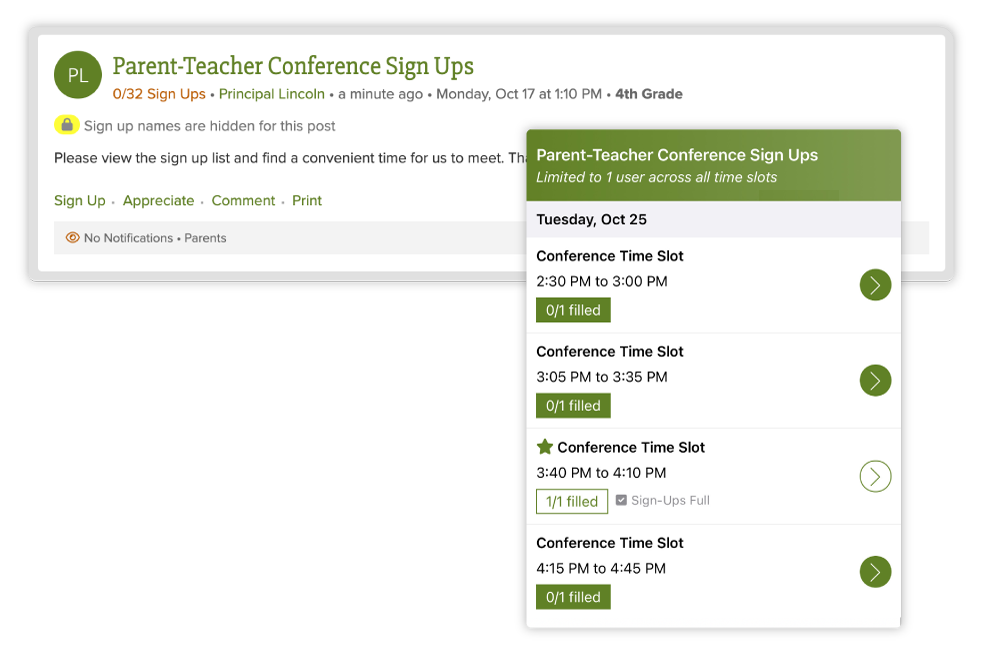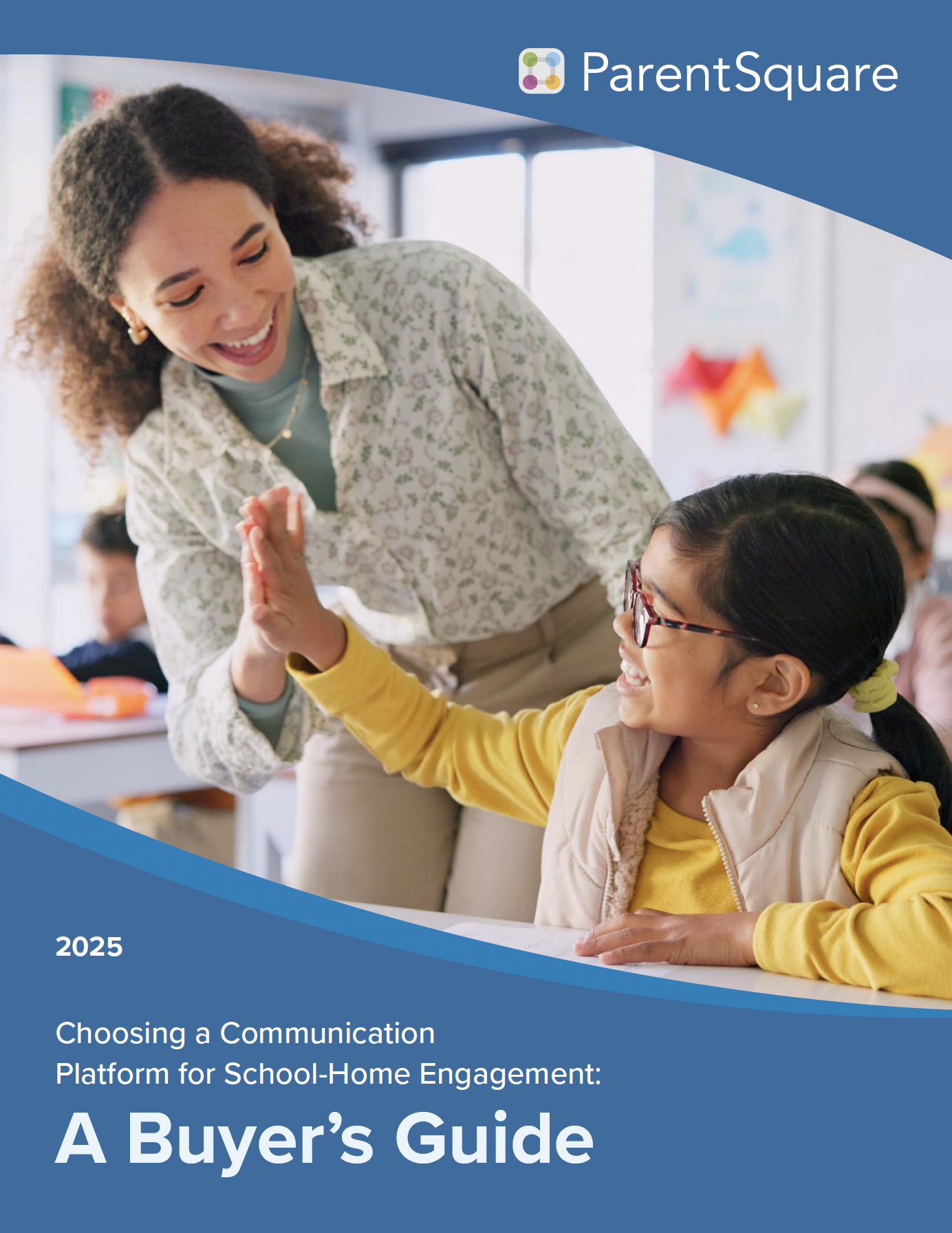
Teachers play a crucial role in shaping the academic and personal growth of their students. While classroom instruction is vital, effective communication with parents and guardians can significantly contribute to student success. Regularly sharing important information and insights can foster a strong partnership between teachers and families, leading to enhanced educational outcomes. In this blog post, we will explore 15 essential topics teachers should write home about to improve student success.
1. Positive achievements
Communicate with parents and guardians about their child’s accomplishments, both big and small. Highlighting academic achievements, improved behavior or positive contributions in the classroom can boost a student’s confidence and reinforce positive behavior.
2. Challenges and areas for improvement
Openly discussing areas where a student may be struggling helps families understand their child’s needs better. Sharing specific challenges and offering suggestions for support at home can encourage a collaborative effort to overcome obstacles.
Template 1: Discussing student challenges and areas for improvement
Dear [Parent/Guardian Name],
I hope this message finds you well. I wanted to take a moment to discuss your child’s progress in [class/subject]. While [student’s name] is showing many strengths and talents, I also wanted to share some insights regarding areas where they might be facing challenges. Our collective effort can greatly contribute to their growth and success.
Strengths
I’ve noticed that [student’s name] excels in [mention strengths or positive attributes]. Their enthusiasm for [specific interests] is truly commendable, and their willingness to participate in [class activities/participation] is a testament to their engagement.Challenges
At the same time, I’ve observed that [student’s name] might encounter some difficulties in [mention specific areas of challenge, e.g., time management, grasping complex concepts, staying organized, etc.]. This is a normal part of the learning process, and with the right support, they can overcome these challenges.
Suggestions for support at home
To facilitate [student’s name’s] progress, here are a few suggestions for support at home:
- Encourage consistent study routines and help them establish a study schedule.
- Offer assistance in breaking down complex topics into smaller, manageable parts.
- Provide a quiet and organized space for focused study.
- Discuss their interests and areas of difficulty openly to foster a supportive environment.
- Celebrate their achievements, no matter how small, to boost their confidence.
I believe that with a collaborative approach between school and home, [student’s name] can conquer these challenges and continue to shine. Please feel free to reach out if you have any questions or concerns, or if you’d like to discuss this further.
Thank you for your continued support in your child’s education.
Warm regards,
[Your Name]
[Your Contact Information]
Template 2: Collaborating to address student challenges and growth opportunities
Hello [Parent/Guardian Name],
I trust you are doing well. I wanted to touch base regarding your child’s progress in [class/subject]. It’s apparent that [student’s name] is making great strides, and I wanted to share insights on both their accomplishments and areas where they could use additional support for growth.
Accomplishments
I’m delighted to see how [student’s name] has shown remarkable aptitude in [mention strengths or achievements]. Their dedication to [specific activities/subjects] is truly impressive and demonstrates their commitment to learning.
Areas for growth
While [student’s name] has achieved much, there are some areas that could benefit from focused attention. For instance, I’ve noticed [mention specific challenges, such as organizing thoughts in written assignments, approaching complex problems, etc.]. Recognizing these challenges is the first step towards supporting [student’s name] in their journey.Suggestions for collaborative support
To facilitate [student’s name]‘s development, here are a few collaborative steps we can take:
- Foster open conversations about their learning experiences, both successes and challenges.
- Explore various strategies together to address areas of difficulty.
- Encourage them to seek help when needed, either from you or from me, to ensure they never feel alone in their journey.
- Celebrate their perseverance and effort, reinforcing the idea that learning is a process.
I’m confident that with our combined efforts, [student’s name] will continue to flourish. If you have any questions, thoughts, or would like to discuss this further, please don’t hesitate to reach out.
Thank you for being an active partner in your child’s education.
Best regards,
[Your Name]
[Your Contact Information]
3. Individual learning styles
Inform families about their child’s preferred learning styles. By understanding how their child learns best, parents and guardians can provide additional support and create a conducive learning environment at home.
4. Classroom expectations
Clearly communicate classroom expectations, rules and routines to families. When parents and guardians are aware of the classroom dynamics, they can reinforce consistent behavior and help students align their actions both at home and at school.
![]() With ParentSquare, teachers can post news and announcements to keep parents and guardians in the know. Newsletters and posts give families a window into the classroom by sharing pictures, videos and announcements. As students come back to school after summer break, it’s also a great opportunity to introduce classroom rules, schedules and more for the upcoming school year.
With ParentSquare, teachers can post news and announcements to keep parents and guardians in the know. Newsletters and posts give families a window into the classroom by sharing pictures, videos and announcements. As students come back to school after summer break, it’s also a great opportunity to introduce classroom rules, schedules and more for the upcoming school year.

5. Homework and study habits
Provide guidance on effective homework and study habits. Share strategies that can help families create a structured and distraction-free environment for their child’s independent learning at home.
6. Important deadlines
Regularly update families about upcoming assignments, tests and project deadlines. By keeping parents and guardians informed, teachers can ensure students have ample time to prepare and complete their work, reducing unnecessary stress.
![]() Through direct messages or post reminders, teachers are able to communicate when assignments are due or request information from families via online forms. Parents and guardians can be kept informed and organize all of their notifications and any action required items within a single feed of information.
Through direct messages or post reminders, teachers are able to communicate when assignments are due or request information from families via online forms. Parents and guardians can be kept informed and organize all of their notifications and any action required items within a single feed of information.

7. Celebrating progress
Inform families about the progress their child is making over time. Share periodic assessments, evaluations and milestones to keep them engaged and help them celebrate their child’s growth.
8. Individualized support
If a student requires individualized support or accommodations, communicate these needs to families. Collaboratively develop strategies that address their child’s unique requirements to facilitate a successful learning experience.
9. Extracurricular activities
Encourage participation in extracurricular activities and inform families about opportunities available within the school or community. Involvement in such activities can enhance a student’s overall development and provide them with a well-rounded educational experience.
Template: Encouraging participation in extracurricular activities
Hello [Parent/Guardian Name],
I hope this message finds you well. I wanted to share an exciting aspect of your child’s educational journey – the opportunity to engage in extracurricular activities. These activities can enrich your child’s overall development and contribute to a well-rounded educational experience.
Benefits of extracurricular activities
Participating in extracurricular activities offers numerous benefits beyond the classroom. These activities help students:
- Develop leadership and teamwork skills
- Explore and cultivate their passions and interests
- Improve time management and organizational skills
- Build self-confidence and enhance social interactions
Available opportunities
Our school offers a variety of extracurricular activities that cater to diverse interests, such as [list specific activities or clubs]. Additionally, there might be local community organizations or clubs that provide opportunities for your child to explore new horizons.I encourage you to discuss with your child the possibility of joining one or more of these activities. Their involvement can add depth to their learning experience and help them discover hidden talents and passions. If you have any questions about specific activities or would like more information, please don’t hesitate to reach out. Your support in encouraging your child’s participation in extracurricular activities is greatly appreciated.
Thank you for being an active partner in your child’s education.
Warm regards,
[Your Name]
[Your Contact Information]
10. Resources and learning tools
Share information about helpful resources, websites, books or learning tools that can supplement classroom instruction. Recommending educational materials allows families to actively engage in their child’s learning journey.
11. Communication channels
Outline the various channels available for families to reach out with questions or concerns. Provide details about email, phone calls, parent-teacher meetings, or online platforms where parents and guardians can connect with you to foster open lines of communication.
12. Health and well-being
Keep families informed about the importance of maintaining good physical and mental health. Share tips and resources on fostering healthy habits, stress management and the significance of balanced nutrition to support students’ overall well-being.
13. Peer relationships
Discuss the importance of positive peer relationships and social-emotional development. Encourage families to engage in conversations about friendships, empathy and conflict resolution to help their child navigate social interactions successfully.
Template: Collaborating on nurturing positive peer relationships and social skills
Hello [Parent/Guardian Name],
I hope this message finds you well. I wanted to discuss a significant aspect of your child’s growth – their interactions with peers and the development of essential social skills. A strong partnership between school and home can greatly contribute to fostering these skills.
The significance of positive peer relationships
Positive friendships have a profound impact on your child’s social development. By engaging with peers, they learn to navigate diverse perspectives, build resilience and acquire valuable communication and conflict resolution skills. These skills are essential for their overall well-being and future success.
Encouraging meaningful conversations at home
I encourage you to initiate conversations with your child about their friendships and social experiences. Through these conversations, they can learn:
- The importance of showing empathy and understanding towards their peers
- How to effectively communicate their thoughts and feelings
- Strategies for resolving conflicts in a respectful and productive manner
Suggestions for home support
To support your child’s growth in this area, consider implementing the following practices:
- Facilitate playdates or activities that encourage teamwork and cooperation.
- Discuss fictional stories or real-life scenarios that highlight friendship, empathy, and effective communication.
- Create an open environment where your child feels comfortable discussing their social interactions.
- Demonstrate positive communication and conflict resolution techniques within your family interactions.
Together, we can equip your child with the skills needed to navigate social dynamics successfully. Please feel free to reach out if you have any questions, ideas, or would like to discuss this further.
Thank you for your dedication to your child’s development.
Best regards,
[Your Name]
[Your Contact Information]
14. Career exploration
Inform families about career exploration opportunities within the curriculum or through external programs. Help them understand the importance of guiding their child’s interests and exploring potential career paths from an early age.
15. Parent-teacher collaboration
Emphasize the importance of ongoing collaboration between families and teachers. Invite parents and guardians to be active partners in their child’s education, attending meetings, sharing concerns and working together to create a supportive learning environment.
![]() Increase participation with time slot sign-ups and automatic reminders for your families. ParentSquare makes conference sign-up easy to set-up and the best part – no paper! Teachers have the ability to indicate special conference slots for English learner families, so interpreter services can be provided. Additionally, teachers can also designate times for certain families if they wish.
Increase participation with time slot sign-ups and automatic reminders for your families. ParentSquare makes conference sign-up easy to set-up and the best part – no paper! Teachers have the ability to indicate special conference slots for English learner families, so interpreter services can be provided. Additionally, teachers can also designate times for certain families if they wish.

Effective communication between teachers and families is vital for nurturing student success. By sharing these 15 key messages with parents and guardians, teachers can strengthen the partnership between home and school. Through collaboration and mutual support, teachers and families can create an environment that fosters students’ academic, social and emotional growth, setting them on the path to lifelong success.
BONUS! Here are some additional messages that can encourage participation from parents and guardians:
- Invite families to volunteer in the classroom. This helps the teacher, of course, but also provides parents and guardians with a look into the school day. Even small tasks like sharpening pencils, organizing books or decorating walls helps families see how their child is interacting with others in class.
- Ask for needed items. From tissue boxes and light snacks, to supplies for a class party, this gives families a way to participate that may not be able to volunteer. It can also send a message to students that school is important to their family.
- Share your class calendar for the school year. Keep families informed of important dates like field trips, class parties and testing dates by ensuring your calendar is easy to find. With ParentSquare, teachers can load events manually or sync their ICS/Google calendar where they are already communicating with families for easy future reference.
- Get to know your students and families. Use a simple form to learn about each student in your class. Here are three short, five question surveys that you can use. The first is geared towards elementary students, the second is intended for secondary students and the third is for families to complete.
Survey for elementary students:
Getting to Know You!
- What’s your favorite subject in school?
- What do you like to do for fun after school?
- Who is your favorite book character?
- What’s something you’re really good at?
- If you could go anywhere on vacation, where would you choose?
Survey for secondary students:
Getting to Know You Better!
- What extracurricular activities or hobbies are you involved in?
- What’s your preferred way to spend your weekend?
- What do you aspire to do after high school?
- Who’s a historical figure or role model you admire?
- What’s a social or global issue you care about?
Survey for families:
Family Insights
This survey aims to foster a deeper understanding of my students’ family backgrounds, traditions and communication preferences. It provides insights that can help me create a more supportive classroom environment for every student and their family.
- How would you describe your family’s dynamic?
- Nuclear family (parents and children)
- Extended family (including grandparents, aunts, uncles)
- Blended family (combining step-parents and step-siblings)
- Single-parent family
- Other (please describe)
- What are some favorite activities your family enjoys doing together?
- Outdoor adventures (hiking, picnics)
- Movie or game nights at home
- Cooking or baking together
- Attending cultural or community events
- Other (please specify)
- Are there any family traditions or celebrations that are important to you?
- Religious holidays or observances
- Cultural festivals
- Birthdays and anniversaries
- Annual family vacations
- Other (please share)
- How do you prefer to communicate with the school and teachers?
- Phone calls
- Parent-teacher conferences
- School communication app
- Other (please indicate)
- Is there any important information about your family that you’d like to share with me? This could include interests, languages spoken at home, or any special considerations for your child.
- (Open-ended response)
ParentSquare is here to help you build strong partnerships that empower your students and foster lifelong learners within your communities. Learn more about these features and many more by booking a demo today!







